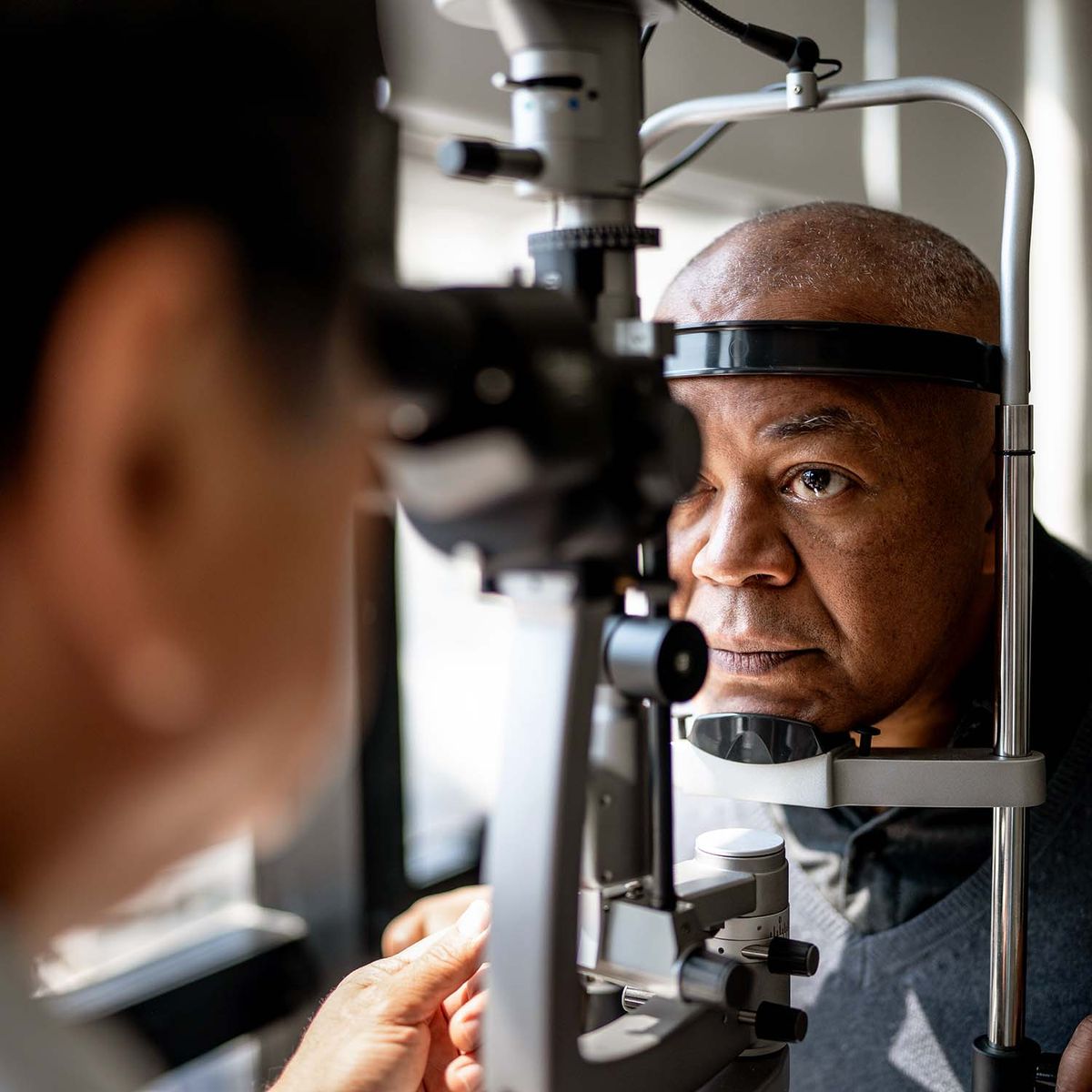New Analysis Confirms Benefit of Supplements for Slowing Age-Related Macular Degeneration

Substituting lutein and zeaxanthin for beta-carotene in a dietary supplement that slows the progression of age-related macular degeneration (AMD) increased the supplement’s effectiveness and reduced the risk of lung cancer due to beta-carotene, according to a follow-up analysis of a large clinical trial. This new report, which analyzed 10 years of data from Age-Related Eye Disease Study 2 (AREDS2), was funded by the National Institutes of Health and published in JAMA Ophthalmology.
AMD, the most common cause of blindness in older Americans, is a degenerative disease of the retina, the light-sensitive tissue at the back of the eye. Progressive death of retinal cells in the macula, the part of the retina that provides clear central vision, eventually leads to blindness. Treatment can slow or reverse vision loss; however, no cure for AMD exists.
The original Age-Related Eye Disease Study (AREDS), launched in 1996, showed that a dietary supplement formula of 500 mg vitamin C, 400 international units vitamin E, 2 mg copper, 80 mg zinc, and 15 mg beta-carotene could significantly slow the progression of AMD from moderate to late disease. However, two concurrent but unrelated studies revealed that people who smoked and took beta-carotene supplements had a higher risk of developing lung cancer.
The AREDS2 clinical trial, which began in 2006, compared a formula with 10 mg lutein and 2 mg zeaxanthin in place of beta-carotene with the original beta-carotene formulation. Because beta-carotene had been shown to be harmful to smokers, formulations containing beta-carotene were given only to people who had never smoked or who had quit smoking. At the completion of the 5-year study period, all participants were provided the AREDS2 supplements with lutein and zeaxanthin, vitamins C and E, and zinc plus copper.
For this new analysis, 3,883 of the original 4,203 AREDS2 participants were contacted by phone between December 1, 2012, and December 31, 2018. The researchers collected information on whether the participants’ AMD had progressed to late disease and whether they had been diagnosed with lung cancer.
Although all participants had switched to the lutein and zeaxanthin formula at the end of the trial, the follow-up study showed that beta-carotene nearly doubled the risk of lung cancer for those who had ever smoked and there was no increased risk of lung cancer in those receiving lutein and zeaxanthin. Furthermore, after 10 years, the group originally assigned to receive lutein and zeaxanthin had an additional 20 percent reduced risk for late AMD progression compared to those who received beta-carotene. The researchers who conducted the new analysis concluded that lutein and zeaxanthin are an appropriate replacement for beta-carotene that is safe and effective for long-term use.
Reference
- Chew EY, Clemons TE, Agrón E, et al. Long-term outcomes of adding lutein/zeaxanthin and ω-3 fatty acids to the AREDS supplements on age-related macular degeneration progression: AREDS2 Report 28. JAMA Ophthalmology. June 2, 2022. [Epub ahead of print].
.png)
Comments